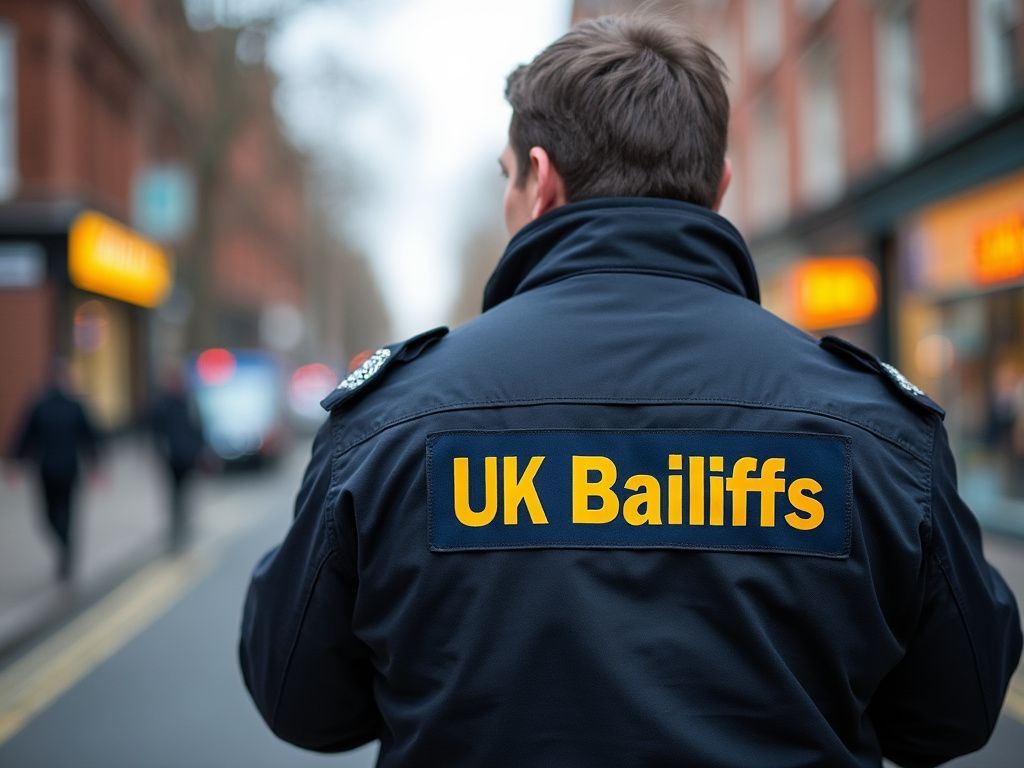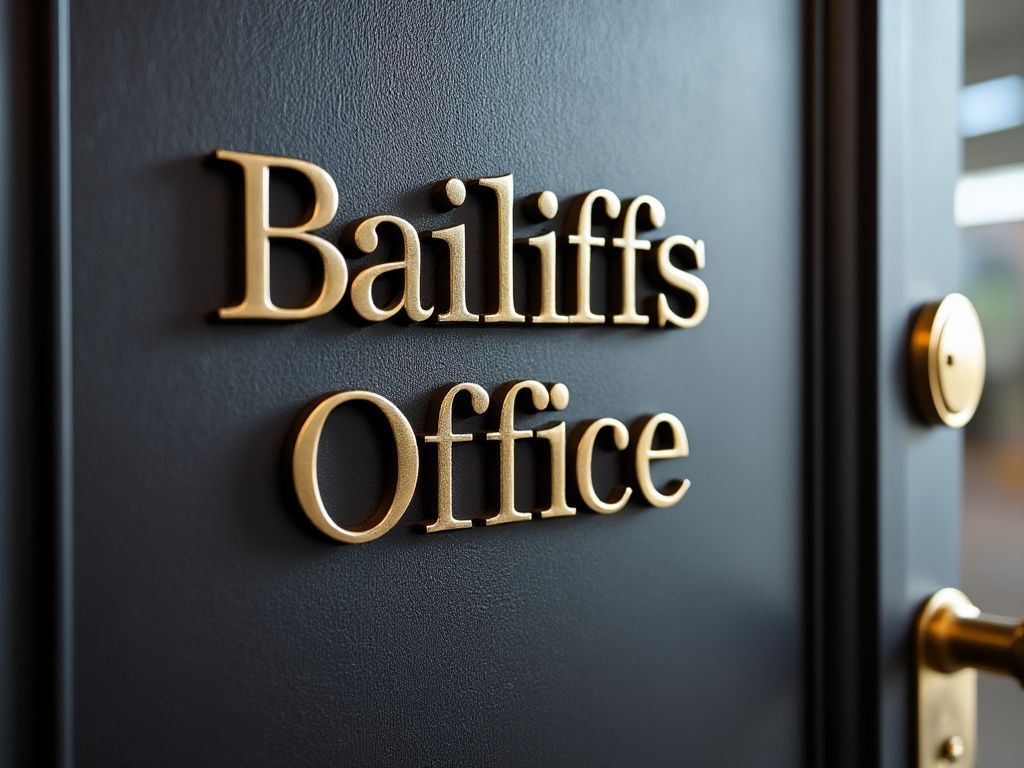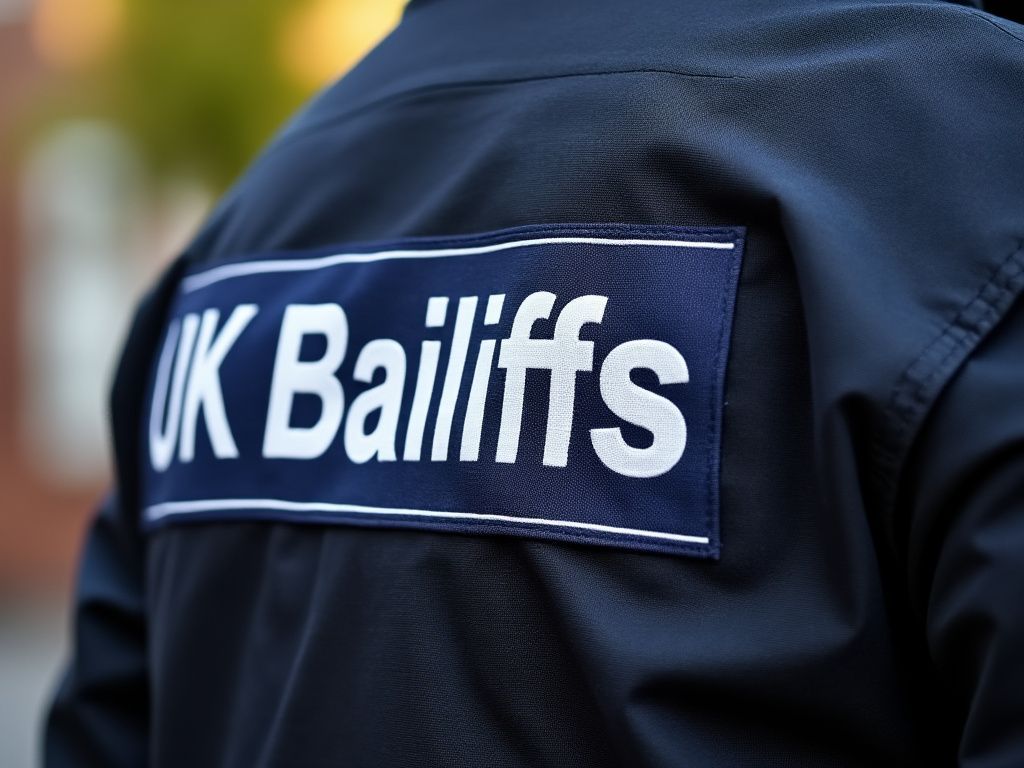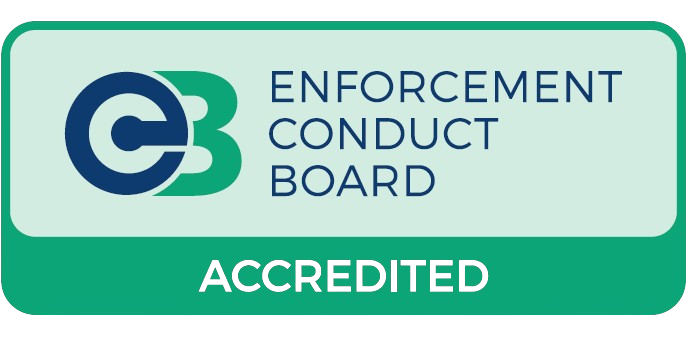Bailiffs
Bailiff was originally the term used by the Normans to describe the officer responsible for executing the decisions of a court.
The duty of the bailiff would include serving summonses and and executing all warrants issued from that Court.
Until 2014, the term was used to describe either a person employed directly by the Court (County Court Bailiff) or a person employed through a Private Enforcement Agency (Certificated Bailiff)
In 2014, legislation called 'Taking Control of Goods Regulations' was introduced by the British Government to help regulate the industry and establish a set of fees and rules.
As part of these rules, the term 'Bailiff' was replaced by 'Enforcement Agent'

Enforcement Agents
Enforcement agent is now the official name for bailiff since revised regulations in 2014, although the term “bailiff” is still commonly used.
In a nutshell, enforcement agents are used to collect unpaid debts on behalf of creditors (including local authorities, government departments and private creditors)
They have the legal power to remove and sell goods (called taking control) using warrants and writs of control to cover the debt and fees charged to the debtor.
Certificated enforcement agents are normally self-employed or employed by a private debt collection company - they are not employed by the court.
They are not officers of the court, but they are certified by the court.
The certification process enables the court to exercise a degree of control over the standards of competence and conduct of these enforcement agents.
The certificate, granted by the County Court - currently costing £365.00 (December 2024) authorises the enforcement agent to take control of goods anywhere in England and Wales. The certificate must be renewed every two years.
To qualify for a certificate, the applicant must satisfy the court that they are a “fit and proper” person to act as an enforcement agent.
They must prove that they have a sufficient knowledge of the law and procedure relating to powers of enforcement and provide a security bond.
High Court Enforcement Officer
This is a title that causes a lot of confusion, mainly thanks to TV programs such as Can't Pay We'll Take It Away.
The title High Court Enforcement Officer relates to an officer of the High Court of England and Wales who is responsible for the oversight of Writs of Control and usually delegates this authority to a Certificated Enforcement Agents to execute.
There are currently 46 HCEO's in England and Wales and are appointed by the Lord Chancellor.
The term High Court Enforcement Agent, is not a legal term. An Enforcement Agent who executes a Writ of Control is called - an Enforcement Agent.
Enforcement Agents who are executing Writs of Control have slightly different powers to Enforcement Agents who are executing Warrants of Control and the fees charged are different. These are shown below.

County Court Bailiff
County Court bailiffs are used to enforce County Court orders and those orders made at tribunals that have been transferred to the County Court for enforcement. They are directly employed by the courts (specifically, by HM Court and Tribunals Service) and are responsible to the court for their actions.
Since they are Crown employees they do not need to be certificated. When recovering money under a Country Court judgement, a bailiff’s authority to act comes from the warrant of control.
They can take control of goods to recover money owed under the order and associated costs.

Types of Debt Collected
Certificated enforcement agents (formerly known as certified bailiffs) are used to take control of goods and act on a warrant of control issued by a magistrates court to collect debts such as ;
- council tax arrears;
- non-domestic rates;
- magistrates fines and
- child support agency arrears.
and act on a writ of control, issued by a High Court to collect private debt.
It is worth adding that a commercial landlord seeking to recover rent from his tenant, can issue a Certificated Enforcement Agent a warrant of control without the need to go to either court, providing it is issued correctly and in accordance with the regulations. This is known as Commercial Rent Arrears Recovery , or CRAR.
It is important to distinguish between a certificated enforcement agent and a private debt collector.
The crucial difference is that the enforcement agent will have completed the certification process and
will be authorised by the court to act, whereas a private debt collector is an employee of a private company. They do not have the same legal power as certificated enforcement agents. For example, debt collectors
are not allowed to take control of goods.
Fees Charged
The main difference between Enforcement Agents acting under a Warrant of Control (Eg Commercial Rent Arrears, Magistrates Fines, Business Rates Arrears etc) and a Writ of Control (eg Private Debt) is the fees that can be charged and the number of stages involved.
Enforcement other than under a High Court Writ (eg Warrant of Control)
Compliance Stage £75.00
Enforcement Stage £235 + 7.5% of sum recovered exceeding £1500
Sale and Disposal Stage £110 + 7.5% of sum recovered exceeding £1500
Enforcement under a High Court Writ
Compliance Stage £75.00
First Enforcement Stage £190 + 7.5% of sum recovered exceeding £100
Second Enforcement Stage £495
Sale and Disposal Stage £525 + 7.5% of sum recovered exceeding £1000

The Bailiff Register
The Ministry of Justice maintains the Certificated Enforcement Agent (Bailiff) Register, which holds details of all enforcement agents who hold a certificate, granted by a judge at the County Court, which allows them to carry out enforcement action by way of taking control of goods and, if necessary, selling these to recover a debt.
It also contains the details of all individuals who have applied to hold or renew such a certificate.
You can check if a bailiff is on the register by clicking HERE







